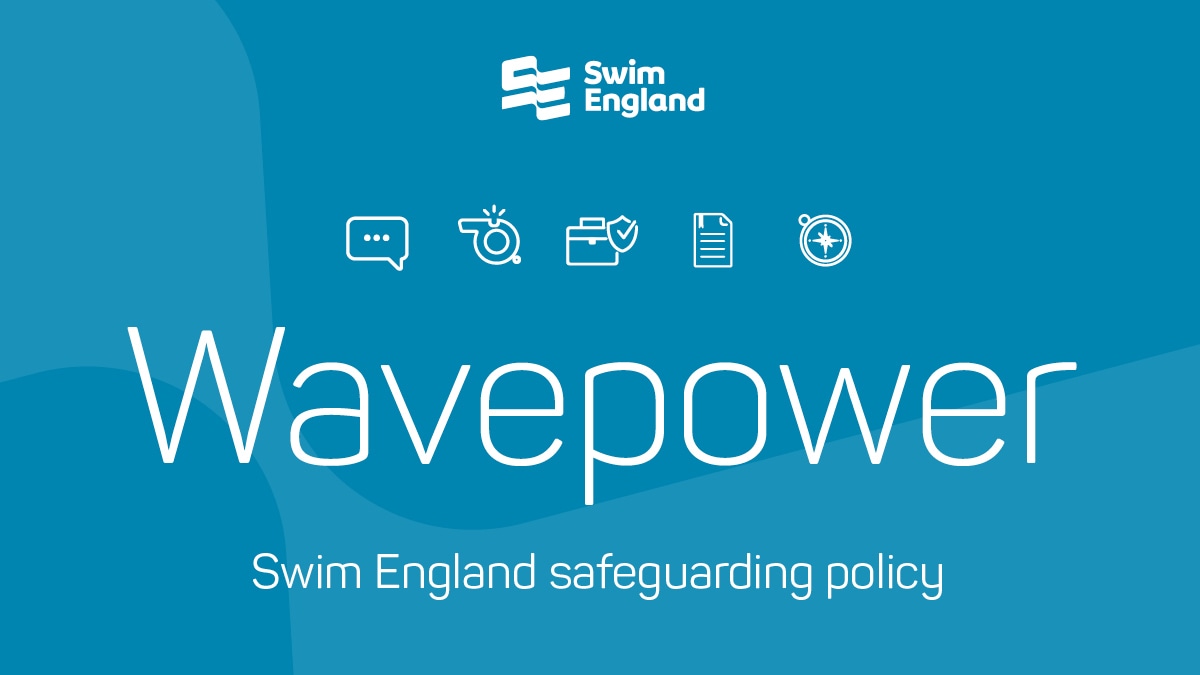
Swim England publishes updated version of its safeguarding policy, Wavepower
3 January 2024
Swim England has published an updated version of its safeguarding policy and procedures document.
The new edition of Wavepower contains a number of important changes which aim to ensure everyone is able to take part in aquatic sports and activities in a safe, positive and enjoyable environment.
All Swim England affiliated clubs and organisations are required to adopt Wavepower, which is now a ‘living and breathing’ digital-only document that will be reviewed annually but updated as and when is necessary.
The key changes introduced in the latest version cover adult safeguarding, additional measures to protect members in changing rooms, approved training, recruitment and clarification around the independence of welfare officers.
They are:
Adult safeguarding
Previously, Wavepower was the Swim England safeguarding policies and procedures document for child safeguarding and did not cover the important, and developing, area of adult safeguarding. For the first time, Wavepower now includes an adult safeguarding policy as well as directions on reporting concerns at adults at risk of harm.
Safeguarding changing rooms
Currently, Wavepower’s changing room policy prohibits taking photographs with a camera or mobile device in changing areas. This has changed in the updated version of Wavepower to prohibit all use of a mobile phone or device in a changing area during Swim England regulated activity.
Approved training
From 2024, anyone who holds a role which Wavepower states requires safeguarding training will need to complete the Swim England Safeguarding course. This is a bespoke course which covers the important and unique aspects of safeguarding in an aquatic environment.
Safer recruitment
Wavepower has clarified Swim England’s position on safer recruitment of paid roles in regulated activity and it will be mandatory to follow the full safer recruitment actions contained in the policy.
The role of the welfare officer
It will no longer be ‘best practice’ but mandatory that the welfare officer of an organisation is not related to, or in a close relationship with, either the chair/owner/proprietor, or a coach/swimming teacher of the organisation they are the welfare officer for.
James Diamond, Swim England national safeguarding manager, said: “Swim England is extremely committed to creating a culture in our sports and activities which makes everyone feel protected, included and welcomed.
“Welfare officers and those with responsibilities for safeguarding will find the new, concise look of Wavepower useful when planning, prioritising and implementing the safeguarding activities which are necessary to protect members.
“However, we believe the management of safeguarding should be the responsibility of everyone involved in aquatics.
“Whether you’re a club official, coach, teacher, technical official, team manager, chaperone or parent / guardian, everyone has a duty of care to safeguard members and Wavepower plays a major part in ensuring that’s the case.
“Although it had been previously updated every three years, it will now be reviewed annually and amended as and when so it includes the most up-to-date legislation, regulations and guidance.
“We’d encourage everyone to look at it and be aware of the key areas to help us build a safer culture across all aspects of aquatics.”


